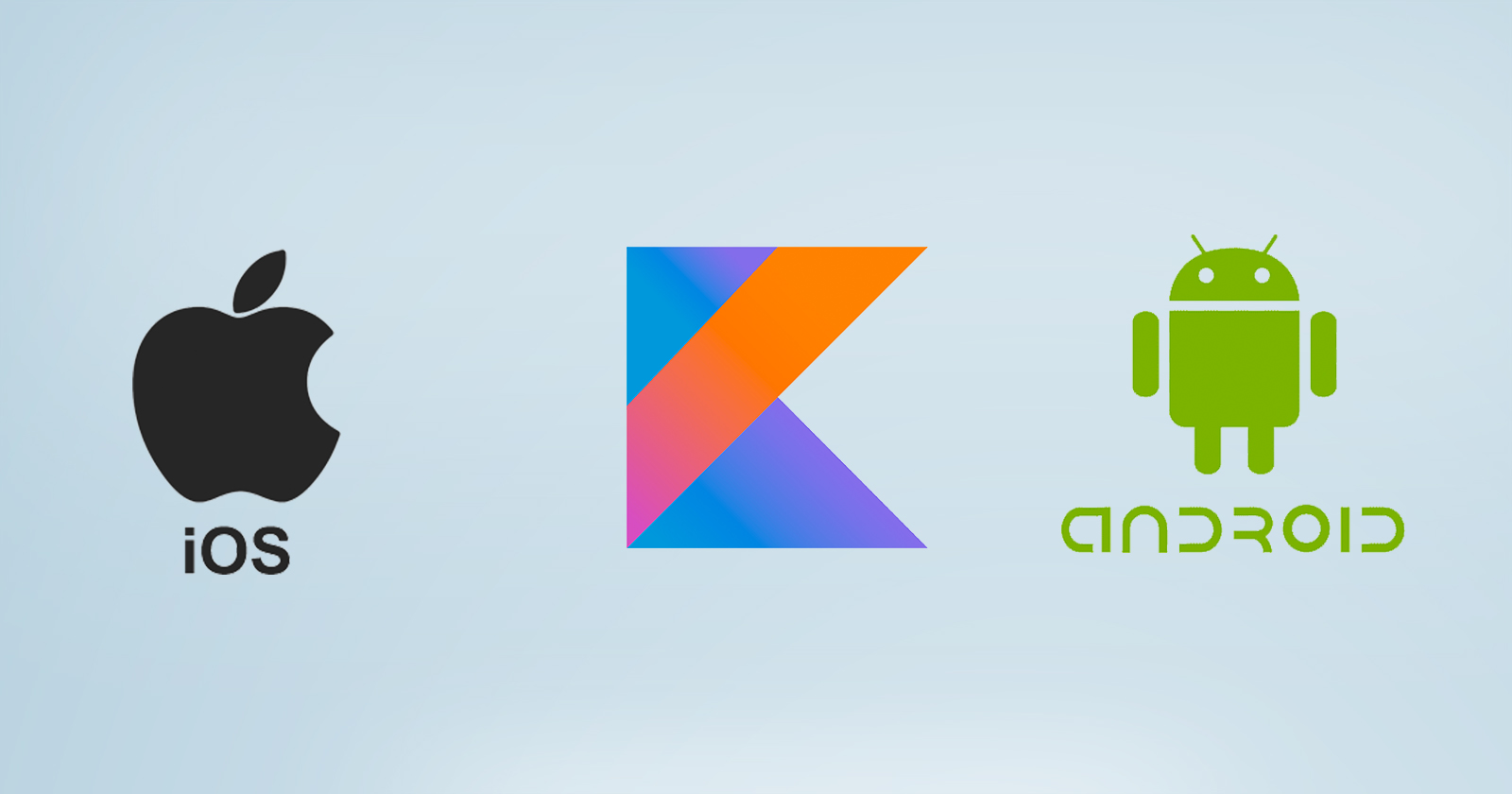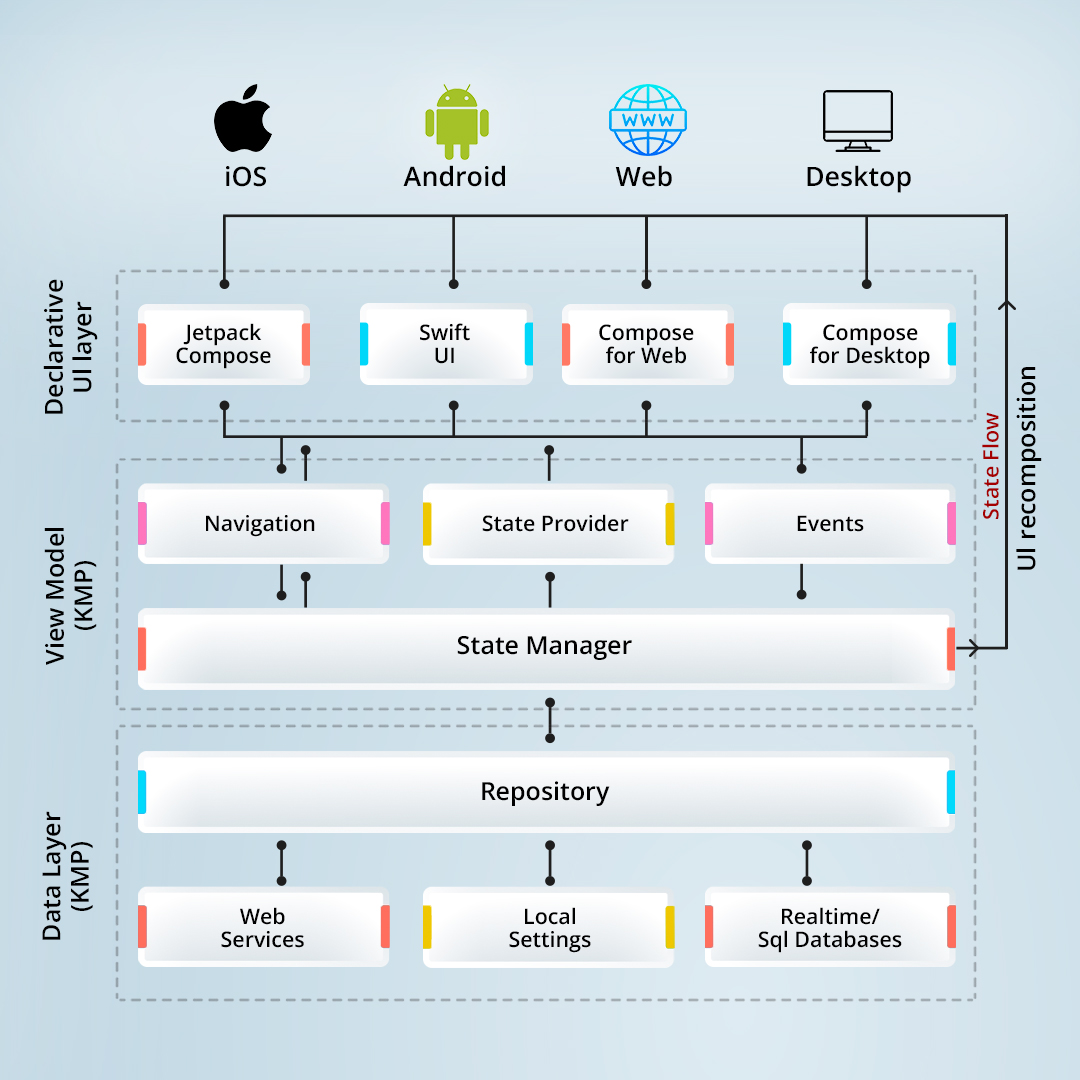Why Kotlin Multiplatform
 Codefy Labs
Codefy Labs
In the world of tech, there's a cool tool called Kotlin Multiplatform that acts like a magic wand for developers. Imagine being able to write your app just once and then poof! It works everywhere — on iPhones, Android phones, desktop, and even websites.
It's like building a Lego set that can transform into anything you want. This means developers can save time and still make apps that feel right at home on whatever device you're using. Super handy, right?

Why choose Kotlin Multiplatform, you ask?
Over the past few years, the mobile app development scene has really evolved. Thanks to the rise of cross-platform tools, developers aren’t just stuck with one platform anymore.
Kotlin Multiplatform has quickly become a favorite, and We here to tell you why it stands out from the rest:
It’s user-friendly: Compared to Java or C++, Kotlin is a breeze. It’s simpler and more intuitive, so you spend less time grappling with basics. Plus, it meshes well with JavaScript frameworks like React Native and AngularJS2. And guess what? If JavaScript isn't your cup of tea, no problem—you don't even need to use it!
No more codebase headaches: When you’re working across different platforms, Kotlin keeps things smooth. You don’t need to tweak your codebase for each platform, which means fewer maintenance headaches and faster deployment.
Seamless data sharing: Imagine sharing data between Android and iOS apps without messing with third-party plugins or libraries. Yep, Kotlin makes that possible.
Stick with your favorite tools: Whether you love Android Studio or Xcode, Kotlin plays nice with them. You can keep using all your favorite libraries and IDEs without changing your workflow.
Reach more people, easily: Crafting apps for the big three OSes—Android, iOS, and Windows—just got a lot simpler, broadening your potential user base.
Native performance, less effort: While many languages perform similarly, Kotlin gets you to native performance quicker because it compiles directly to machine code, not just an intermediate language.
Totally open-source: Developed by JetBrains, the brains behind IntelliJ IDEA, Kotlin is completely open-source under the Apache 2 license. That means no fretting over licenses or fees!
Feels native because it is native: Unlike other platforms that rely on browser engines, Kotlin apps run directly on the device. This lets your app fully interact with the device’s hardware and sensors, making it feel 100% native.
So there you have it! Kotlin Multiplatform isn’t just another tool—it’s a smarter, more efficient way to build apps that feel great and work beautifully across all platforms. Why not give it a whirl and see how it goes?
Subscribe to my newsletter
Read articles from Codefy Labs directly inside your inbox. Subscribe to the newsletter, and don't miss out.
Written by

Codefy Labs
Codefy Labs
We build products that scale